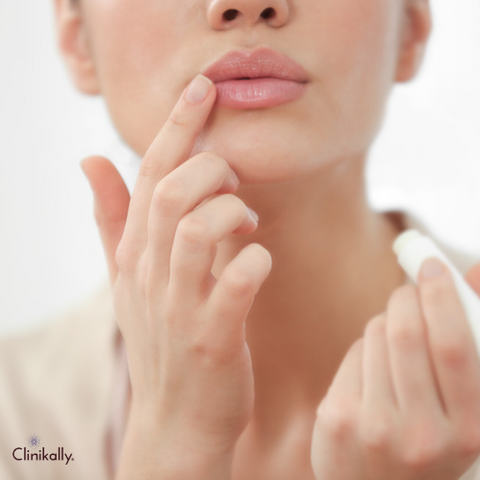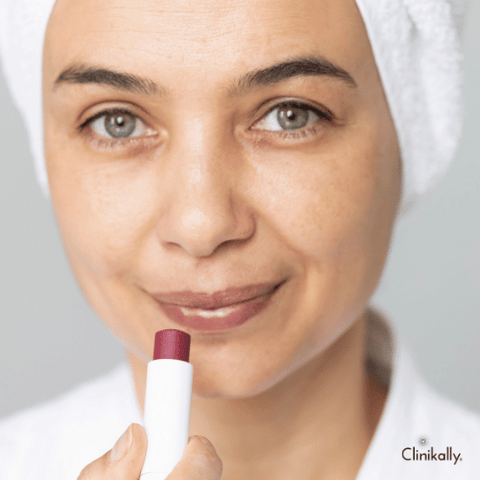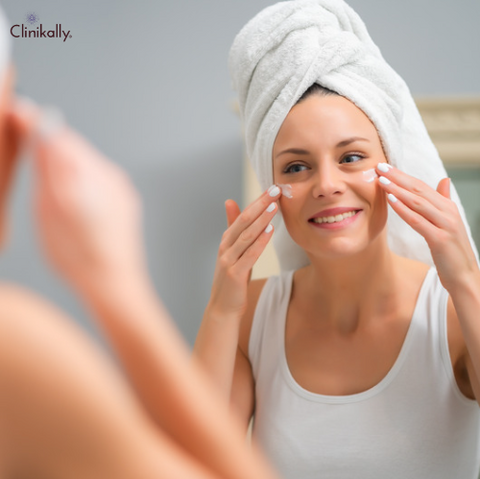In today's beauty-conscious world, sharing makeup, chapstick, and lipstick may seem harmless, but it can actually lead to the transmission of herpes, a common viral infection. In this blog post, we will delve into the intricacies of herpes, its transmission, and how to prevent it when using makeup and personal care items.
What is Herpes and How is it Spread?
Herpes is a common viral infection that affects millions of people worldwide. It is caused by the herpes simplex virus (HSV) and can manifest as either oral herpes, which affects the mouth and lips, or genital herpes, which affects the genitals and surrounding areas. Herpes is a highly contagious infection and can be transmitted through various means, including sexual contact, skin-to-skin contact, and even sharing personal items such as towels or razors.
Understanding the Herpes Simplex Virus (HSV)
Herpes is a viral infection caused by the herpes simplex virus (HSV). There are two types of HSV: HSV-1 and HSV-2. HSV-1 primarily causes oral herpes, which results in cold sores or fever blisters around the mouth, while HSV-2 is responsible for genital herpes, causing sores in the genital area. Both types can be spread through close personal contact, including kissing, sexual contact, and sharing personal items such as makeup, chapstick, and lipstick.
Cold Sores and Fever Blisters
Cold sores and fever blisters are common manifestations of oral herpes. They are small, painful, fluid-filled blisters that typically appear on or around the lips. These blisters can break open, releasing the virus and making it contagious. In some cases, cold sores can also appear on the face, inside the mouth, or on the nose.
Contagiousness of Herpes
Herpes is highly contagious, especially when blisters are present. The virus can also be spread during periods without symptoms through a process called asymptomatic shedding. It is important to note that HSV can be transmitted even when no visible symptoms are present.
Can You Get Herpes from Sharing Makeup, Chapstick, or Lipstick?

Sharing makeup, chapstick, or lipstick is a common practice among friends and family. However, many people are concerned about the possibility of contracting herpes through these actions. Herpes is a viral infection that can be transmitted through skin-to-skin contact, including contact with an infected person's saliva. In this section, we will explore whether or not sharing makeup, chapstick, or lipstick can lead to herpes transmission and discuss ways to protect yourself from contracting the virus.
The Risks of Sharing Personal Care Items
Sharing personal care items, including makeup, chapstick, and lipstick, increases the risk of transmitting herpes. When someone with herpes uses these items, the virus can be transferred to the product's surface. Subsequently, when another person uses the same item, the virus can be passed on to them, causing an infection.
Oral Herpes and Transmission through Makeup
Oral herpes can be easily transmitted through the sharing of makeup items that come into contact with the mouth or face, such as lipstick, lip gloss, and makeup brushes. These products can harbour the virus and facilitate its spread to others. Since the virus can survive on surfaces for several hours, it is crucial to avoid sharing makeup items with others to minimize the risk of transmission.
Genital Herpes and Transmission through Makeup
While the transmission of genital herpes through makeup is less common, it is still possible. The virus can be spread if makeup or makeup applicators are used in the genital area or on cold sores and then shared with others. This highlights the importance of using separate makeup products and applicators for different body parts and not sharing them.
Preventing Herpes Transmission

Herpes is a highly contagious viral infection that can be transmitted through skin-to-skin contact, sexual activity, and even sharing personal items such as razors or towels. While herpes cannot be cured, there are steps you can take to prevent its transmission. In this section, we will discuss some of the most effective ways to reduce the risk of herpes transmission, including practicing safe sex, avoiding skin-to-skin contact during outbreaks, and properly managing personal items. By following these preventative measures, you can greatly reduce the risk of contracting or spreading herpes.
Disinfecting Makeup Products
To reduce the risk of herpes transmission, it is crucial to regularly disinfect makeup products and tools. Alcohol-based cleaners are effective at killing the virus on surfaces. Wipe down makeup packaging and clean makeup brushes with a disinfectant solution, allowing them to air-dry completely before using them again.
Avoiding Herpes Infection
Preventing herpes infection involves practicing good hygiene, avoiding contact with infected individuals, and not sharing personal care items. Abstain from kissing or engaging in sexual activity with someone who has visible cold sores or genital herpes sores. Additionally, use separate makeup products and tools for different body parts and avoid sharing them with others.
Herpes Symptoms, Treatment, and Prevention

Herpes is a common viral infection that can manifest as either oral herpes or genital herpes. It is caused by the herpes simplex virus (HSV) and can cause a range of uncomfortable symptoms, including painful blisters or sores, itching, and burning sensations. While herpes cannot be cured, there are several treatments available to help manage symptoms and reduce the frequency of outbreaks. Additionally, there are steps you can take to prevent herpes transmission, including practicing safe sex and avoiding skin-to-skin contact during outbreaks. In this section, we will discuss the symptoms of herpes, available treatments, and preventative measures you can take to reduce the risk of infection.
Symptoms of Herpes
Herpes symptoms vary between individuals and may not always be apparent. Common symptoms include:
-
Tingling, itching, or burning sensations around the affected area
-
Painful blisters or open sores
-
Swollen lymph nodes
-
Fever, headache, or muscle aches
It is important to remember that the virus can still be transmitted even if no visible symptoms are present.
Treatment for Herpes
While there is no cure for herpes, antiviral medications can help manage symptoms and reduce the frequency and severity of outbreaks.
Antiviral Medication
Antiviral medications, such as acyclovir, valacyclovir, and famciclovir, can help reduce the duration and severity of herpes outbreaks. They can also lower the risk of transmission to sexual partners. These medications can be taken daily as suppressive therapy or as episodic treatment when an outbreak occurs.
Home Remedies for Herpes
Home remedies can help alleviate the discomfort of herpes outbreaks. Some popular remedies include:
-
Applying a cold compress or ice pack to the affected area
-
Taking over-the-counter pain relievers, such as ibuprofen or acetaminophen
-
Using topical creams containing lidocaine or benzocaine for pain relief
-
Taking warm baths with Epsom salt or baking soda
Immune System Boosters for Herpes
A strong immune system can help prevent herpes outbreaks. To support your immune system, focus on:
-
Eating a balanced diet rich in fruits, vegetables, and whole grains
-
Getting regular exercise
-
Maintaining a healthy sleep schedule
-
Reducing stress through relaxation techniques, such as meditation or yoga
The Stigma of Herpes and Safe Makeup Practices

Herpes is a common viral infection that can be transmitted through skin-to-skin contact, including contact with an infected person's saliva. Unfortunately, herpes is often stigmatized, leading to feelings of shame and isolation among those who have contracted the virus. Additionally, many people are concerned about the possibility of contracting herpes through sharing makeup, chapstick, or lipstick. In this section, we will discuss the stigma surrounding herpes and how it can impact those who have contracted the virus. We will also explore safe makeup practices and provide tips for preventing herpes transmission while still being able to enjoy cosmetics. By promoting understanding and safe practices, we can reduce the stigma of herpes and help those with the virus feel more comfortable and confident.
Hygiene for Herpes
Proper hygiene plays a crucial role in preventing herpes transmission. Wash your hands frequently, especially before touching your face, and avoid touching cold sores or genital sores. Keep the affected area clean and dry, and avoid picking at sores to prevent the spread of the virus.
Herpes Awareness
Educating yourself and others about herpes is essential to reduce the stigma surrounding the virus. Open conversations and sharing accurate information can help create understanding and empathy for those living with herpes.
Safe Makeup Practices for Herpes Prevention
Adopting safe makeup practices can help prevent herpes transmission:
-
Do not share makeup, chapstick, or lipstick with others
-
Regularly disinfect makeup products and tools
-
Use separate products and applicators for different body parts
-
Discard any makeup that has come into contact with a herpes outbreak
Conclusion
Herpes is a highly contagious viral infection that can spread easily through close personal contact, including the sharing of makeup, chapstick, and lipstick. Although herpes can cause discomfort and embarrassment, it is important to remember that it is a common condition that affects millions of people worldwide. By educating ourselves about the virus and adopting safe makeup practices, we can minimize the risk of transmission and help reduce the stigma associated with herpes.
It is essential to understand that there is no cure for herpes, but treatment can help manage symptoms and reduce the risk of transmission. Practicing good hygiene, such as washing your hands frequently, can also help prevent the spread of the virus. Additionally, avoiding sharing personal items like makeup and practicing safe sex can greatly reduce the risk of transmission.
The stigma surrounding herpes can cause emotional distress and isolation for those who have been diagnosed with the virus. It is important to remember that herpes is a medical condition, and individuals who have contracted the virus should not be judged or discriminated against. It is essential to provide support and understanding to those who are affected by herpes.
In conclusion, by taking proactive measures to prevent the spread of herpes and promoting awareness and understanding of the virus, we can help reduce the impact of this common viral infection. Staying vigilant and making informed decisions can go a long way in protecting yourself and others from herpes, and ultimately help to create a more supportive and inclusive society.









































